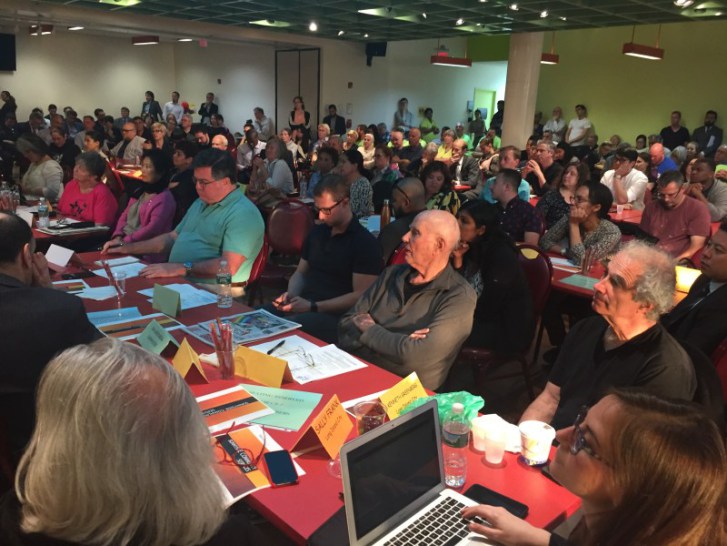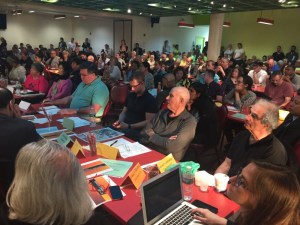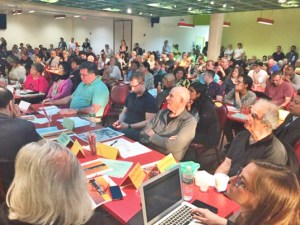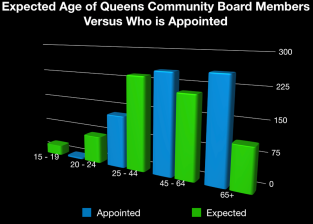New Yorkers Will Vote on Community Board Term Limits This November
Under the Charter Revision Commission's proposal, community board members would lose their spots after four consecutive two-year terms -- but could be reappointed after a two-year hiatus.

If all goes as planned, New Yorkers will get a chance in November to vote on community board reforms, including theoretical term limits for board members.
Under the proposal, approved yesterday by the mayor’s Charter Revision Commission, community board members would be limited four two-year terms in a row. However, council members and borough presidents would be able to reappoint former members after a two-year hiatus.
The commission voted yesterday in favor of that initiative and two others, versions of which will be put on the ballot for the November 6 general election [PDF].
Community board members have served unlimited terms since the boards were created in 1963. Borough presidents and council members keep reappointing the same people over and over.
The lack of turnover means boards are often out of touch with ever-changing communities. Even in districts with low car ownership, board members will often fight tooth and nail to preserve parking at the expense of projects with widespread community benefits.
The process of choosing board members, meanwhile, varies borough by borough, and is often shrouded in secrecy.
In Brooklyn this year, for example, safe streets advocate Hilda Cohen lost her spot on Community Board 2 on the grounds that “other devoted community residents be given an opportunity to make their contributions.” But Cohen had served just three years on the board, while Council Member Laurie Cumbo reappointed multiple people who had served for longer.
The community board proposal — of which only a portion may end up on the ballot — also includes transparency measures, which would be the same for all boroughs. Borough presidents would be required to issue annual reports identifying the number of open board spots, “information about current board members,” recruitment methods, and “evaluation criteria” for selecting members.
A separate ballot item would create a “Civic Engagement Commission” tasked with providing urban planning support and other resources to community boards.
“Throughout our public engagement process, we heard strong interest in making community boards more reflective of communities they represent, and more effective in representing those communities,” commission executive director Matt Gewolb said before yesterday’s vote.


